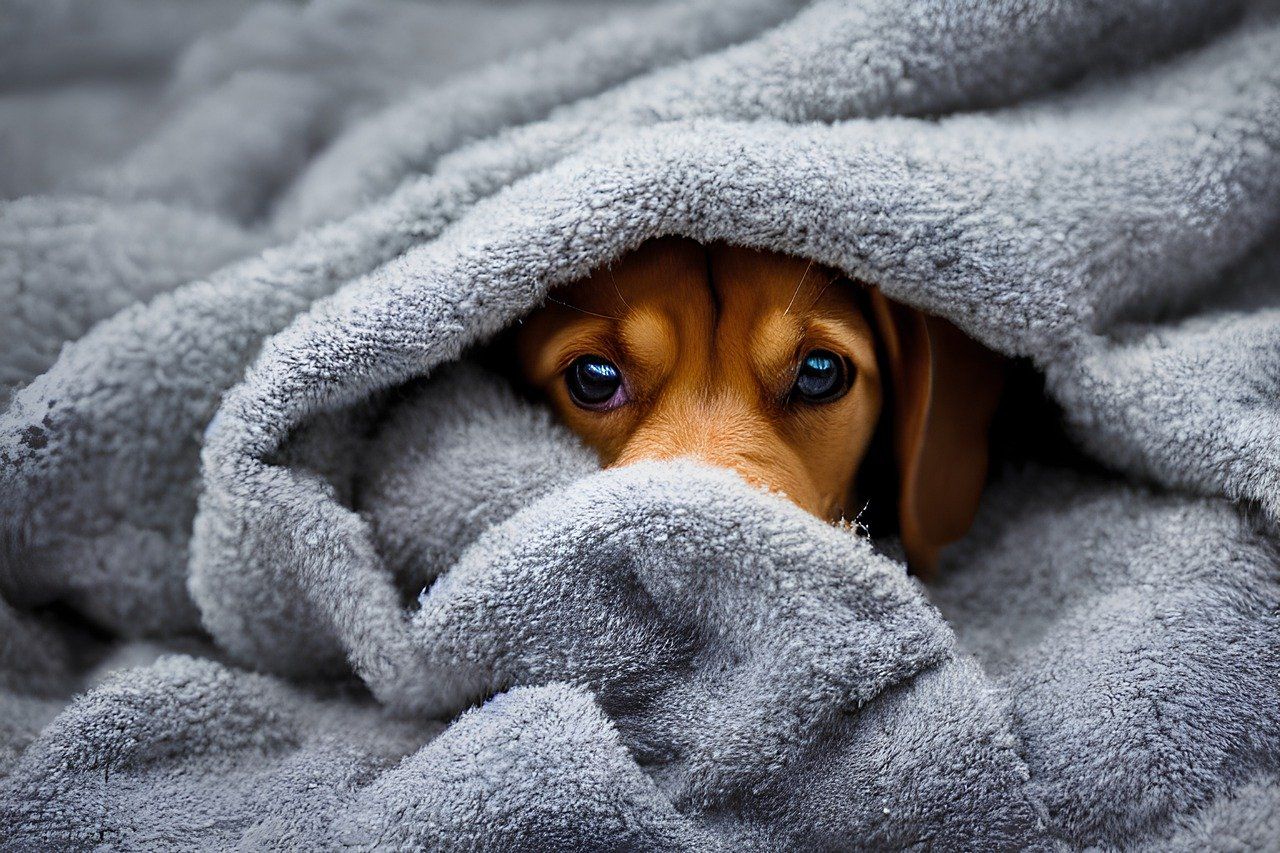As storm season approaches, many pet owners brace themselves not only for wild weather but also for the emotional turmoil it can bring to their dogs. Even the calmest and most placid dogs can become unsettled, displaying behaviour that seems completely at odds with their usual temperament.
Some dogs respond to storms by running frantically along fences, barking at the sky as if trying to drive the thunder away. Others may cower under beds or behind furniture, trembling and whimpering in fear. Sadly, shelters often report an increase in lost dogs after storms, as panic drives them to bolt from their homes in search of safety.
This extreme stress response isn’t simply “bad behaviour” – it’s a flood of adrenaline combined with fear, insecurity, and sensory overload. Just as humans can feel overwhelmed in extreme weather, dogs experience storms as an assault on their senses. The loud crashes of thunder, sudden flashes of lightning, shifts in barometric pressure, and even the static charge in the air can all contribute to their distress.
Supporting Dogs During Storms
Creating a safe, calm environment during a storm is one of the best first steps. A covered crate in a quiet space – such as a bathroom or laundry – with soft bedding and background music can help reduce the impact of startling noises. Your own behaviour also matters. Dogs are deeply attuned to their human companions, so staying calm, speaking gently, and offering firm but reassuring contact (such as hugs or gentle massage) can help shift their association with the storm from terror to comfort.
Over time, you can also work with gradual retraining. Simple techniques such as:
- Playing in light rain together before a storm arrives to build positive associations.
- Sound desensitisation practice by playing recordings of storms at a low volume during calm weather and slowly increasing the volume as your dog adjusts.
These small steps, combined with patience, can gradually reduce storm anxiety.
Herbal Support for Nervous Dogs
While environmental changes and training can help, many dogs respond best when their nervous system is gently supported. For centuries, herbal medicine has been used to ease agitation, calm frayed nerves, and restore balance. Modern evidence supports the use of herbs such as:
- Passionflower (Passiflora incarnata): Known for its calming effect on the nervous system and its ability to reduce restlessness and agitation.
- Skullcap (Scutellaria lateriflora): Traditionally used as a nervine tonic, helping the body cope with stress and promoting deeper relaxation.
- Valerian (Valeriana officinalis): Widely studied for its sedative and calming effects, assisting in reducing hyperactivity and promoting calm.
- Vervain (Verbena officinalis): A classic herb for nervous tension, offering gentle relaxation without drowsiness.
Together, these herbs help to nourish and restore the nervous system, allowing your dog to cope more effectively with stressors like storms. By easing physical tension and supporting emotional resilience, dogs are better able to engage with retraining and behavioural conditioning.
At McDowells, our Animal Botanical™ Relax formulation has been trusted for over 20 years by owners and trainers alike to support dogs experiencing anxiety, nervousness, or storm-related fear. By nourishing the nervous system naturally, it helps both dog and owner ride out the storm with greater calm and connection.

